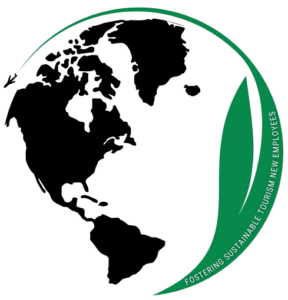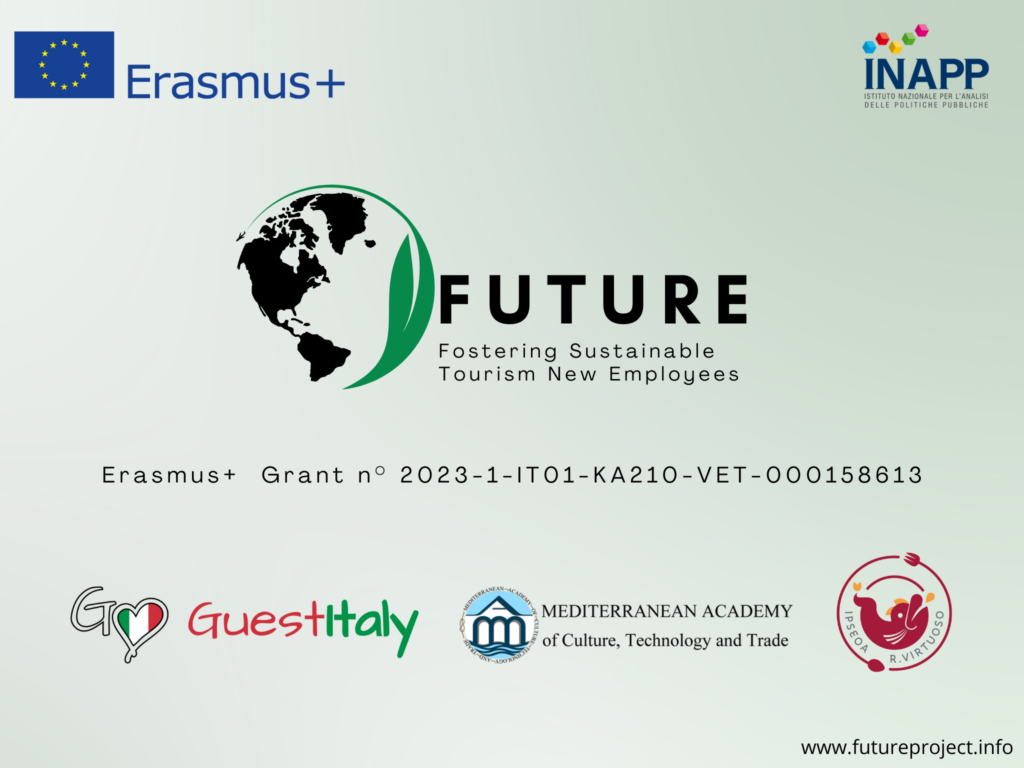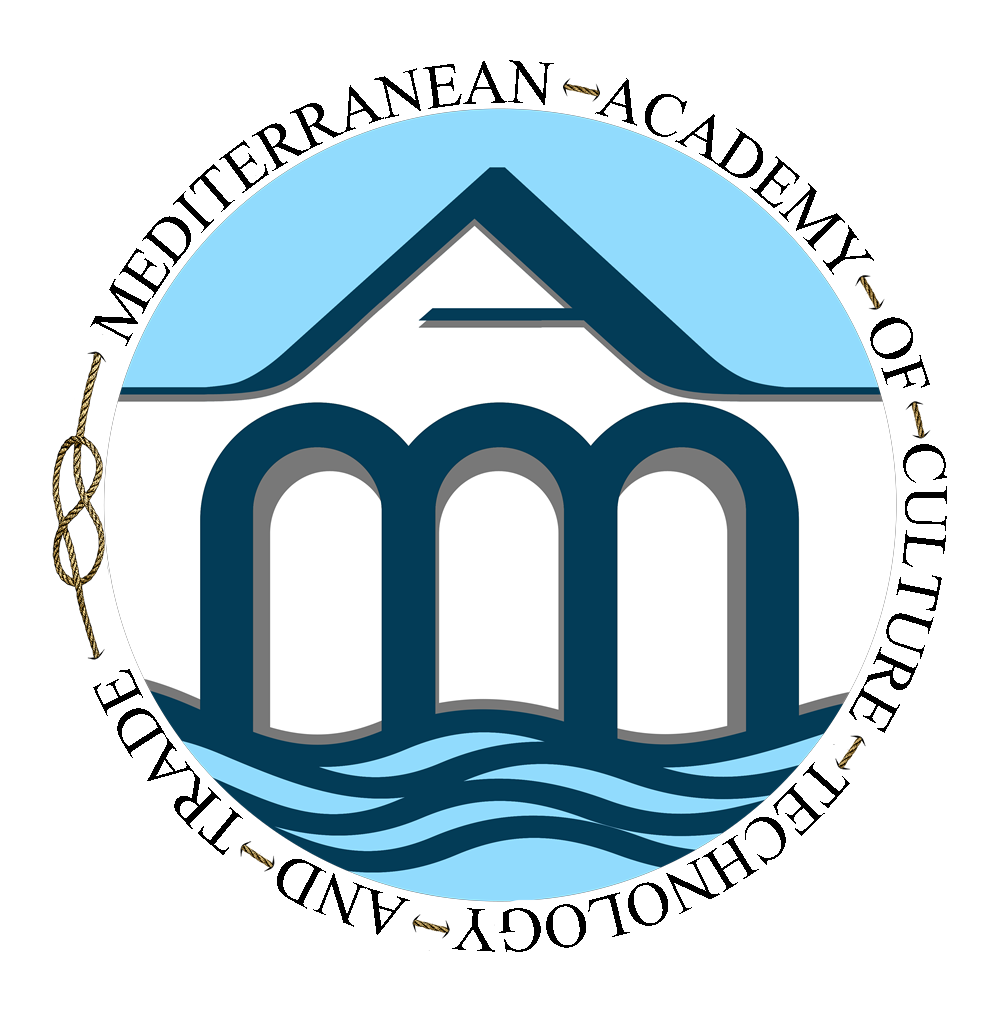Project description
The FUTURE Fostering sUstainable ToURism new Employees project has the overall objective of fostering environmental sustainability in multidisciplinary areas, taking as its reference the EU and national strategic directions related to the 2030 Agenda goals. In particular, it wants to anticipate changes in the workplace of the future by accompanying green tarnsiation towards more sustainable, low-carbon and resource-efficient business models resource-efficient business models, developing green skills and competences in educational institutions and the future generation.
OBJECTIVES:
- O1 . Promote and support the development in the two identified target groups (VET teachers and VET students) of skills
green skills related to the ability to save on energy consumption, on the reduction of waste of raw materials and in the use of
organic, quality labelled, zero kilometre or local products in tourism in these areas such as catering
hospitality, tour operators etc. - O2 To include participants with fewer opportunities due to gender, age and socio-economic status in order to reduce the
risk of social exclusion and offer a professional alternative; - O3 Improve transversal skills in the design and management of complex projects and provide a European dimension to the three
European dimension to the three participating organisations, two of which are presenting for the first time a proposal VET Partnership VET cooperation of the Erasmus+ programme.




